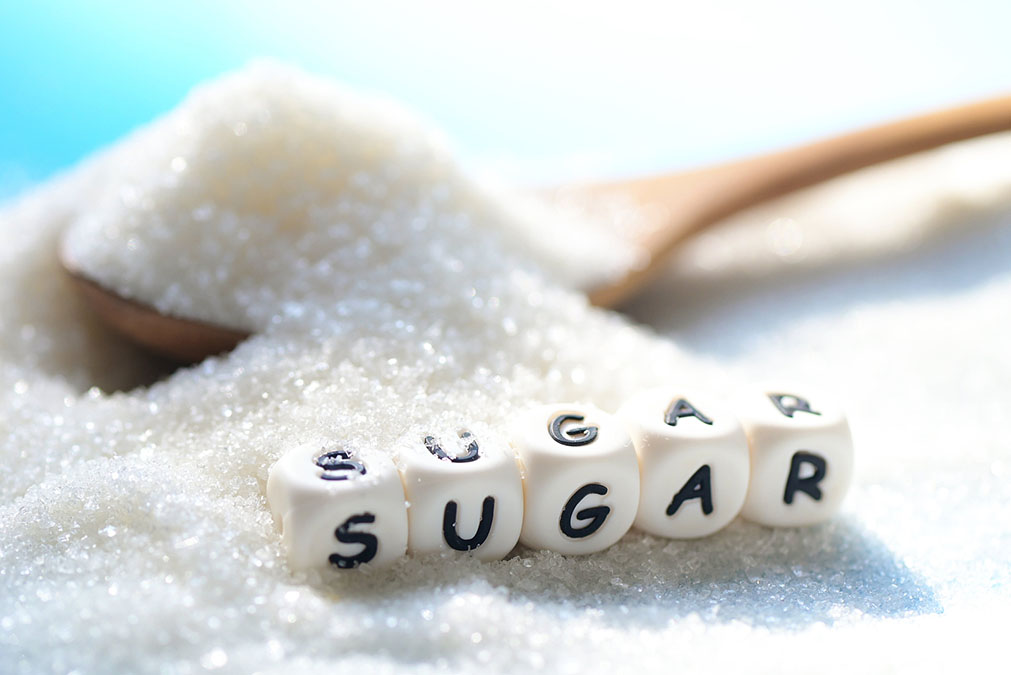 A study in the latest edition of Scientific Reports, written by researchers at the University of Bath and King’s College London, proposes a mechanism through which one specific type of food causes Alzheimer’s disease.
A study in the latest edition of Scientific Reports, written by researchers at the University of Bath and King’s College London, proposes a mechanism through which one specific type of food causes Alzheimer’s disease.
Unfortunately, it’s a food that is everywhere, as an additive or by itself. It’s known by many names, as attempts to disguise its presence in ingredient lists are crafty.
Sugar molecules inside your body have this nasty habit of binding to protein and fat molecules. When this binding is controlled by enzymes, it’s normal and harmless.
However, when this binding happens without the involvement of enzymes, scientists call it glycation, which can be harmful.
During the process of glycation, protein and fat cells can be damaged, and harmful advanced glycation end products can be released that can damage other cells even further.
None of this is new knowledge, but researchers have never quite understood how glycation leads to Alzheimer’s.
The Bath and London scientists studied brain samples of people with and without Alzheimer’s. They discovered that at the beginning of the disease, glycation damaged an enzyme called macrophage migration inhibitory factor (MIF).
This MIF enzyme is part of your immune system. When proteins start building up in your brain, as happens at the beginning of Alzheimer’s, MIF is supposed to stimulate other brain cells, called glia, to deal with this abnormal protein buildup.
However, because glycation suppresses MIF, this process cannot occur, which allows Alzheimer’s to proceed undisturbed.
In other words, your immune system has a mechanism to combat the changes that lead to Alzheimer’s, but excessive sugar intake blocks this mechanism.
We often wonder why our immune systems are so feeble and cannot protect us against cancer, Alzheimer’s, cardiovascular disease, and other widespread 21st-century ailments.
This study shows that our immune systems are much better than we think—but they need help from us in the form of a reasonably healthy diet.
Be on the lookout for added sugar in your foods: sucrose, high-fructose corn syrup, and other types. Checking the carbohydrate content is the best way to see whether you’re eating excessive amounts of sugar.

 Overcoming IBD
Overcoming IBD Multiple Sclerosis
Multiple Sclerosis Banishing Bronchitis
Banishing Bronchitis Gum Disease Gone
Gum Disease Gone Overcoming Onychomycosis
Overcoming Onychomycosis Neuropathy No More
Neuropathy No More The Prostate Protocol
The Prostate Protocol Brain Booster
Brain Booster
 Ironbound
Ironbound
 Solution for Shingles
Solution for Shingles
 The Bone Density Solution
The Bone Density Solution
 The Ultimate Healing Protocol
The Ultimate Healing Protocol
 The Parkinson's Protocol
The Parkinson's Protocol
 The Chronic Kidney Disease Solution
The Chronic Kidney Disease Solution
 Overthrowing Anxiety
Overthrowing Anxiety The Fatty Liver Solution
The Fatty Liver Solution The Hypothyroidism Solution
The Hypothyroidism Solution
 The End of Gout
The End of Gout The Blood Pressure Program
The Blood Pressure Program
 The Oxigized Cholesterol Strategy
The Oxigized Cholesterol Strategy
 Stop Snoring And Sleep Apnea Program
Stop Snoring And Sleep Apnea Program
 The Arthritis Strategy
The Arthritis Strategy The Vertigo & Dizziness Program
The Vertigo & Dizziness Program The 3-Step Diabetes Strategy
The 3-Step Diabetes Strategy Hemorrhoids Healing Protocol
Hemorrhoids Healing Protocol The Erectile Dysfunction Master
The Erectile Dysfunction Master Weight Loss Breeze
Weight Loss Breeze The IBS Program
The IBS Program The Insomnia Program
The Insomnia Program The Migraine and Headache Program
The Migraine and Headache Program The Neck Pain Solution
The Neck Pain Solution The Menopause Solution
The Menopause Solution The Ejaculation Master
The Ejaculation Master The TMJ Solution
The TMJ Solution The Acid Reflux Solution
The Acid Reflux Solution The Fibromyalgia Solution
The Fibromyalgia Solution The Psoriasis Strategy
The Psoriasis Strategy